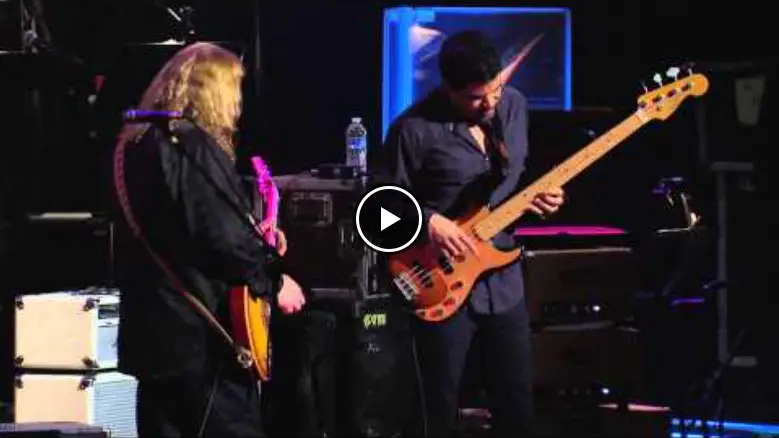
“Whipping Post” is a song by The Allman Brothers Band. Written by Gregg Allman. The five-minute studio version first appeared on their 1969 debut album The Allman Brothers Band. The song’s full power only manifested itself in concert. It was the basis for much longer and more intense performances.
On the Allman Brothers’ 1971 double live album At Fillmore East, a 22-minute version of the song takes up the entire final side.
It was this recording that garnered “Whipping Post” spots on both the Rock and Roll Hall of Fame’s. 500 Songs that Shaped Rock and Roll list and Rolling Stone’s list of “The 500 Greatest Songs of All Time”.
Despite its length, the live “Whipping Post” received considerable progressive rock radio airplay during the early 1970s, especially late at night or on weekends. Such airplay led to “Whipping Post” becoming one of the band’s more familiar and popular songs. This would help give At Fillmore East its reputation as having, as The Rolling Stone Record Guide wrote in 1979, “no wasted notes, no pointless jams, no half-realized vocals—everything counts”, and of being, as Rolling Stone wrote in 2002, “the finest live rock performance ever committed to vinyl.”
VH1 would say that “Whipping Post” was “what the band would become famous for, an endless climb of heightening drama staked out by the twin-guitar exorcisms of Duane and Dickey Betts and the cool, measured, almost jazz-like response of the rhythm section.”
(via wikipedia.org)
The Guitar Heroes of the Allman Brothers Band
The Allman Brothers Band, a name synonymous with Southern rock, has dazzled fans with its unique blend of rock, blues, and country music. Over the years, the band has seen some exceptionally talented guitarists strum their way into the hearts of music lovers. Let’s take a stroll down memory lane and celebrate these guitar heroes.
Duane Allman: The Skydog
Duane Allman, affectionately known as “Skydog,” was not just a founding member; he was the heart of the Allman Brothers Band. Born in 1946, Duane’s slide guitar playing was nothing short of revolutionary. His ability to blend seamless licks with raw emotional power made songs like “Statesboro Blues” and “Whipping Post” timeless classics. Tragically, Duane’s life and career were cut short in a motorcycle accident in 1971, but his legacy endures, influencing countless guitarists around the world.
Dickey Betts: The Ramblin’ Man
After Duane’s untimely death, Dickey Betts stepped into the spotlight. Known for his melodic playing, Betts brought a new dimension to the band’s sound. His songwriting and lead guitar work on tracks like “Ramblin’ Man” and “Jessica” are staples of the band’s repertoire. Betts’ style, marked by smooth, flowing lines and an unmistakable Southern charm, helped define the band’s music for decades.
Warren Haynes: The Workhorse
Joining the band in the late ’80s, Warren Haynes became known for his work ethic and versatility. His robust playing and deep, soulful voice added a new layer to the band’s performances. Haynes, who also juggled duties with Gov’t Mule, brought songs like “Soulshine” into the Allman Brothers’ setlists, ensuring the band’s sound continued to evolve.
Derek Trucks: The Prodigy
Nephew of the band’s drummer Butch Trucks, Derek Trucks joined the Allman Brothers Band when he was just 20 years old. His slide guitar playing is often compared to that of Duane Allman, filled with emotional depth and technical prowess. Derek’s contributions helped rejuvenate the band in the late ’90s and early 2000s, and his solos in songs like “Midnight Rider” have left fans in awe.
Jack Pearson and Jimmy Herring: The Unsung Heroes
While not as widely recognized, Jack Pearson and Jimmy Herring also played crucial roles during their tenures with the band. Pearson’s tenure in the mid-’90s was marked by a gentle touch and versatility, while Herring, although briefly part of the band, showcased remarkable technical skill that kept the band’s music complex and engaging.
The Allman Brothers Band’s guitarists have always been more than just musicians; they were storytellers whose strings spoke the language of the South. Each brought their own flavor to the band, creating a rich tapestry of sounds that continue to influence musicians and delight fans. Whether through live performances or classic recordings, the legacy of these guitarists endures, a testament to their profound impact on music and Southern rock.
Video
Thank You
We appreciate your time and dedication to reading our article. For more of the finest blues guitar music, make sure to follow our Facebook page, “I Love Blues Guitar”. We share exceptional selections every day. Thank you once again for your continued support and readership.


Facebook Comments